You are here
New Releases

UNFPA Regional Situation Report for the Syria Crisis — June 2020
The Regional Situation Report for the Syria Crisis offers a bird’s eye view of UNFPA’s operations within the context of the Syria Crisis. The report is prepared by the UNFPA Regional Syria Response Hub in Amman, Jordan, and spans operations conducted by UNFPA offices in Syria, Jordan, Lebanon, Turkey, Iraq, and Egypt, in addition to operations conducted inside Syria and managed from cross-border Turkey.
In addition to providing aggregated quantitative results for each country, the report also brings stories from the field that highlight the plight of communities inside Syria and in host countries, in addition to underscoring the positive impact of the response services provided by UNFPA in the areas of sexual and reproductive health, gender-based violence, youth, and others. As of February 2020, the report also covers UNFPA’s efforts to ensure continuity of operations throughout the Syria crisis region during the COVID-19 pandemic.

UNFPA Regional Situation Report for the Syria Crisis — May 2020
The Regional Situation Report for the Syria Crisis offers a bird’s eye view of UNFPA’s operations within the context of the Syria Crisis. The report is prepared by the UNFPA Arab States Hub in Amman, Jordan, and spans operations conducted by UNFPA offices in Syria, Jordan, Lebanon, Turkey, Iraq, and Egypt, in addition to operations conducted inside Syria and managed from cross-border Turkey.
In addition to providing aggregated quantitative results for each country, the report also brings stories from the field that highlight the plight of communities inside Syria and in host countries, in addition to underscoring the positive impact of the response services provided by UNFPA in the areas of sexual and reproductive health, gender-based violence, youth, and others. As of February 2020, the report also covers UNFPA’s efforts to ensure continuity of operations throughout the Syria crisis region during the COVID-19 pandemic.

Syria Country Office -19 Humanitarian Response Flash Update #5
As of July 7, 2020, the Syrian Ministry of Health (MoH) has reported 372 COVID-19 cases across Syria: 232 active, 126 recoveries and 14 registered deaths.[1] The first positive case was announced on 22 March 2020, with the first fatality reported on 29 March 2020. Although no movement restrictions have been imposed in Syria recently, the Syrian government is still taking active steps towards ensuring that precautionary measures are followed in public service facilities and universities.
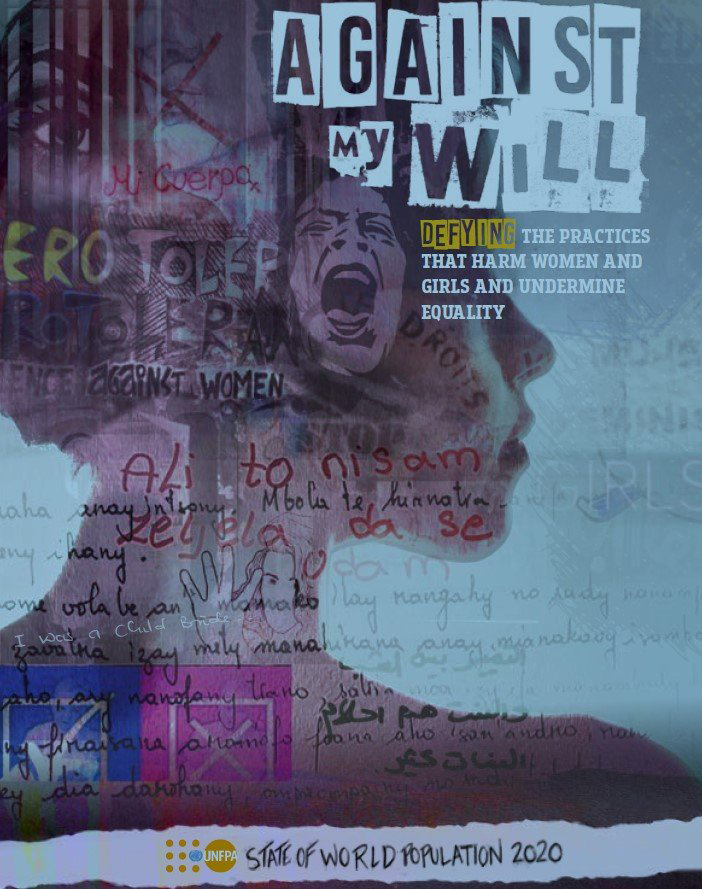
State of World Population Highlights 2020
Every day, hundreds of thousands of GIRLS around the world are harmed physically or psychologically, or both, with the full knowledge and consent of their families, friends and communities. The impact ripples throughout society, reinforcing gender stereotypes and inequalities. The scope of harmful practices is vast, but three in particular have been almost universally denounced as human rights violations yet remain stubbornly widespread: female genital mutilation, child marriage and son preference.
These practices cross borders and cultures. They vary in the specifics of their execution—a girl may have her genitals cut in infancy or adolescence, she may be married off to “protect” her from rape or as part of a trade, she may be erased before birth or
neglected to death after. But these practices are alike in origin; they are rooted in gender inequality and a desire to control female sexuality and reproduction. Though they inflict a devastating array of harms on individual women and girls, the harms inflicted on the world at large, and on future generations, may be greater still.
As the health, education and human potential of women and girls are diminished, so too is humanity. But we have the power to defy the forces that perpetuate harm and to realize a world where every woman and girl is free to chart her
own future.

State of World Population 2020
Every day, hundreds of thousands of girls around the world are subjected to practices that harm them physically or psychologically, or both, with the full knowledge and consent of their families, friends and communities.
The practices reduce and limit their capacity to participate fully in society and to reach their full potential. The impact ripples throughout society and reinforces the very gender stereotypes and inequalities that gave rise to the harm in the first place.
Three widespread harmful practices are female genital mutilation, child marriage and son preference.
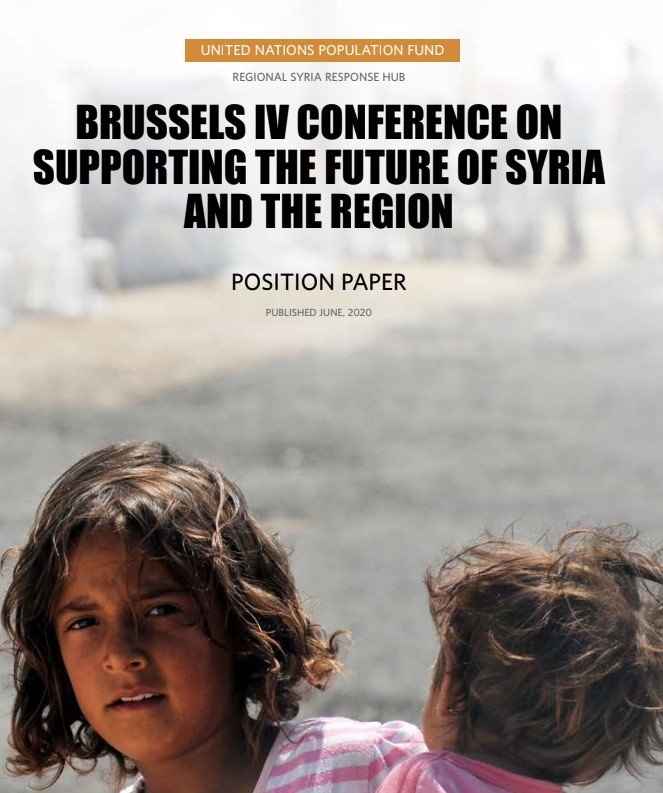
Brussels IV Conference on Supporting the Future of Syria and the Region: Position Paper
Nearly ten years into the crisis, a variety of factors have placed women and girls at increased risks of GBV and in increased need of related services, including SRH. These include multiple displacements, negative coping mechanisms, change of gender roles within the families, growing tensions with host communities and the now worsening socio-economic situation. Meanwhile, evidence shows that the COVID-19 pandemic has further exacerbated the risks of GBV and increased the needs faced by women and girls and impacted their access to life-saving services.
In the lead-up to the Brussels IV conference on supporting Syria and the region, this position paper provides an overview of the evolution of programmes in Syria and the region, highlighting best practices and providing recommendations for the way forward.
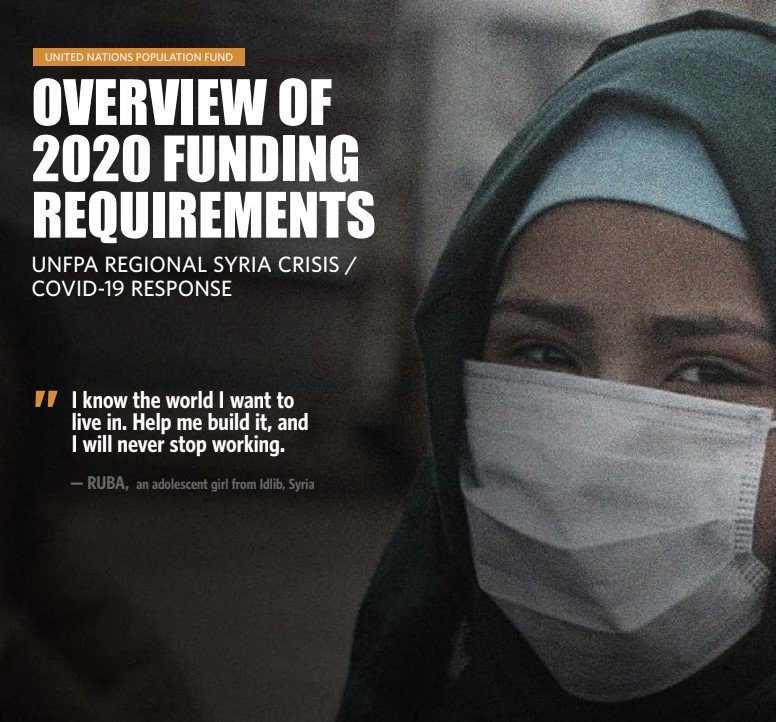
UNFPA Regional Syria Crisis / COVID-19 Response: Overview of 2020 Funding Requirements
The crisis in Syria has been globally recognised as one of the worst humanitarian crises of our time. As of 2020, more than 11.7 million people inside Syria are in need, while close to 5.7 million have taken refuge in neighbouring countries throughout the region. Since 2011, UNFPA has been responding to the needs of Syrian women and girls, delivering an integrated package of sexual and reproductive health (SRH) and gender-based violence (GBV) services that meet the continually evolving needs on the ground.
This funding overview provides a snapshot of UNFPA's needs during 2020, including those required to continue delivering life-saving SRH and GBV services as well as funds needed to support UNFPA's COVID-19 response within the context of the Syria crisis.

Regional Situation Report for the Syria Crisis — April 2020
The Regional Situation Report for the Syria Crisis offers a bird’s eye view of UNFPA’s operations within
the context of the Syria Crisis. The report is prepared by the UNFPA Arab States Hub in Amman, Jordan,
and spans operations conducted by UNFPA offices in Syria, Jordan, Lebanon, Turkey, Iraq, and Egypt, in
addition to operations conducted inside Syria and managed from cross-border Turkey.
In addition to providing aggregated quantitative results for each country, the report also brings stories
from the field that highlight the plight of communities inside Syria and in host countries, in addition to
underscoring the positive impact of the response services provided by UNFPA in the areas of sexual
and reproductive health, gender-based violence, youth, and others. As of February 2020, the report
also covers UNFPA’s efforts to ensure continuity of operations throughout the Syria crisis region during
the COVID-19 pandemic.
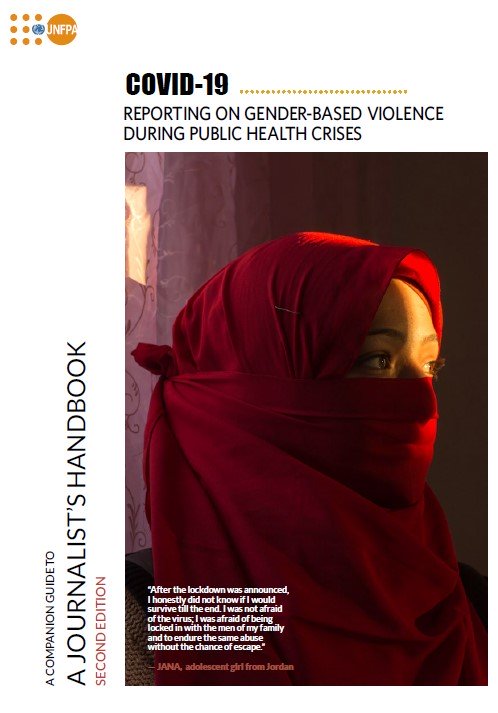
REPORTING ON GENDER-BASED VIOLENCE DURING PUBLIC HEALTH CRISES
During pandemics, lockdowns, curfews and other restrictions on movement are deemed necessary preventative health measures that can save millions of lives. For women and girls, however, they are also sources of increased risk of violence and death. Organisations working to
combat gender-based violence (GBV) worldwide have issued an unsettling amount of reports showing that more GBV is occurring against the backdrop of the COVID-19 pandemic. These reports have underscored the fact that many of the measures deemed necessaryfor controlling a viral outbreak are not only exacerbating GBV-related risks but also significantly limiting the ability of survivors to shield themselves from their abusers, all the while limiting or severing their access to life-saving support. This has been documented repeatedly during previous epidemics throughout the globe, during which women were also observed to take on additional physical, psychological and time burdens as caregivers.
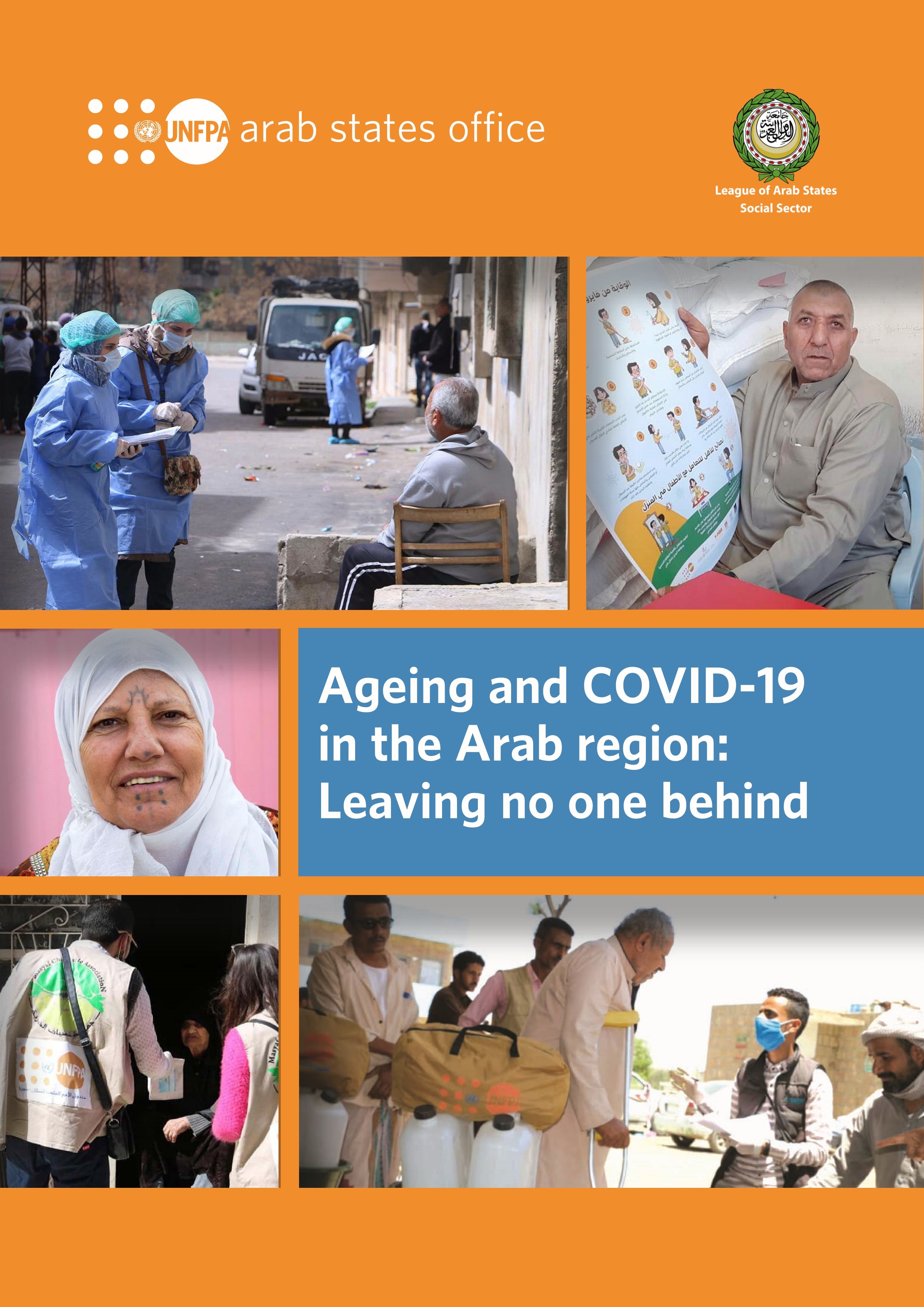
Ageing and COVID-19 in the Arab region: Leaving no one behind
Older persons are the most vulnerable to COVID-19 and therefore more likely to re - quire hospitalization when infected. Ageing is commonly associated with morbidities such as hypertension and diabetes, mak - ing older people more susceptible to hos - pitalization and death. 1 In resource-poor settings, limited health care facilities and the lack of ventilators and oxygen supply can significantly add to death rates among older persons with COVID-19.